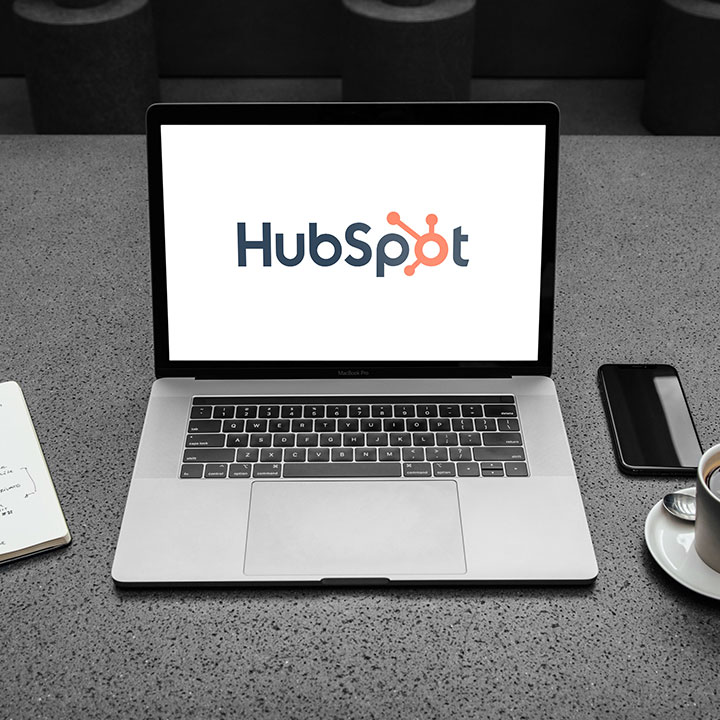As a HubSpot Certified Partner, the team here at Golley Slater will provide you with all the info you need to make the right decision when choosing a CRM platform for your business. We’re not just another digital marketing agency. We have a unique blend of sales, data and marketing experts all under one roof who can deliver effective growth solutions for our clients.
In our latest blog, we share our proven and effective tactics to get started with HubSpot – defining exactly what HubSpot is, how it works and the tools to use to grow your business.
What is HubSpot?
If you work in Sales or Marketing, you’ve likely heard of HubSpot. It’s leading the way in terms of how companies market their business using Inbound Marketing which fun fact, they sort of invented! HubSpot’s co-founder and CEO, Brian Halligan started using the phrase Inbound Marketing back in 2005 when the company just started, but it wasn’t until 2012 that businesses started to take notice and realise the benefits of this ever-growing approach to marketing.
Essentially, HubSpot is a cloud-based CRM software. But it’s much more than that. It helps align sales and marketing teams to work more in sync and ensure that everything a company does to market itself, is all in one complete system. HubSpot essentially connects the disconnected, so here at Golley Slater B2B – of course, we’re behind this!
How does HubSpot work?
HubSpot creates a central location for all your sales and marketing efforts. Think of it as the place you can go to manage personalised landing pages, blog content, sales enablement, lead generation and nurturing, social media marketing, and more. All in one place.
It works by connecting to your business website through its specific software ‘Hubs’ that all work seamlessly together. Ultimately, helping you attract, convert, and close more customers. All of these Hubs can integrate within the main CRM to give you access to all their features, or you can take advantage of HubSpot’s free CRM. So, let me break these down for you…
The HubSpot CRM
HubSpot CRM is free to users, helping you organise your prospects, track your leads and store your current customer information. The key features of HubSpot CRM are:
- User Contact Information for an unlimited number of users!
- Activity Tracking
- Pipeline Visibility
- Easy integration with Outlook and Gmail
- Live chat for your website so you can chat to customers and prospects in real-time
- Email Scheduling for regular communications such as monthly newsletters
What is the HubSpot Sales Hub?
The Sales Hub of HubSpot is designed primarily for your sales team. It’s built to save them time, so they can focus on the end goal – to close a deal. Within the HubSpot Sales Hub, many key features can empower your sales team and improve productivity:
- Automated Email Workflows – allowing your sales team to nurture qualified leads throughout their journey to purchase using their connected Outlook or Gmail inboxes
- Email & Document Tracking so your sales team is notified every time a prospect engages with their 1:1 sales content.
- Multiple pipelines that make it easy for your team to service your leads differently. Not every lead is the same, therefore the communication you send out will differ. Follow up tasks and their frequency need to be managed in this way too.
- Detailed reporting dashboards so you can see what your sales team and doing right and what needs to improve.
There are three plans you can choose from for HubSpot Sales Hub: Starter, Professional and Enterprise. You can find out in more detail here on which features are covered in each of the different packages.
What is the HubSpot Marketing Hub?
Everything you need to engage and capture your prospect’s attention. Within HubSpot’s Marketing Hub you can create branded landing pages, email marketing with A/B testing, create engaging omnichannel campaigns and so much more.
This hub is designed to support your marketing department by offering them a seamless integration with HubSpot CRM so that they can generate more marketing-qualified leads (MQLs). Some key features include:
- Omni-channel Marketing Automation
- ABM automation
- Social Media Management & Scheduling
- Contact and Company Scoring to figure out where your prospects are in the buyer’s journey and how likely they are to lead to a sale.
- Web Traffic Analytics
- Landing Page Creation
- Campaign Reporting

